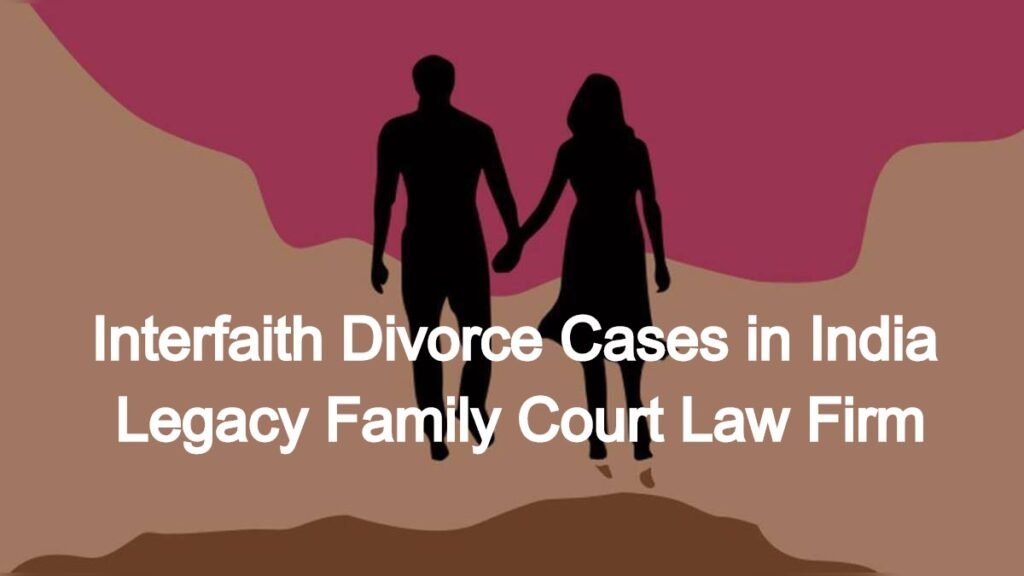Interfaith Divorce in India: Legal Guide & Considerations (Legacy Family Court)
Interfaith Divorce Cases in India: Legal Considerations - Legacy Family Court Law Firm
In India's diverse society, interfaith marriages are becoming increasingly common. However, these unions can present unique challenges when couples decide to divorce. Legacy Family Court Law Firm understands the complexities of interfaith divorce cases and is here to guide you through the legal process.

Understanding the Legal Landscape
Unlike many Western countries, India does not have a uniform civil code governing marriage and divorce. Instead, personal laws based on religion govern these matters. This means the applicable legal principles and procedures for an interfaith divorce will depend on the religion of each spouse.
Here's a brief overview of the legal frameworks for different religions:
- Hindu Marriage Act, 1955: Governs divorce for Hindus, Buddhists, Sikhs, and Jains.
- Muslim Personal Law (Shariat) Application Act, 1937: Applicable to Muslim marriages.
- Indian Divorce Act, 1869: May apply in exceptional circumstances or for interfaith couples where neither spouse adheres to a religion with a codified divorce law.
Key Considerations for Interfaith Divorces
- Jurisdiction: Determining the appropriate court to hear the case can be complex in interfaith marriages. Legacy Family Court Law Firm can help navigate jurisdictional issues based on the religion of each spouse and the location of marriage or residence.
- Grounds for Divorce: The grounds for divorce vary depending on the applicable personal law. Common grounds include adultery, cruelty, desertion, and mental illness. Our experienced lawyers can advise you on the grounds most relevant to your specific situation.
- Child Custody and Support: Child custody and support arrangements are crucial considerations in any divorce, and interfaith cases can involve additional complexities. Legacy Family Court Law Firm will advocate for your parental rights while ensuring the well-being of your children.
- Division of Assets: The division of marital property is another critical aspect of divorce. Our legal team will ensure a fair and equitable distribution of assets based on the applicable law and the specific circumstances of your marriage.
Navigating Religious Customs
In some interfaith divorces, religious customs and practices may come into play. Legacy Family Court Law Firm can provide guidance on navigating these complexities while ensuring your legal rights are protected. We understand the importance of sensitivity and respect for religious beliefs during this challenging time.
Read More
- High Court Transfer for Divorce Cases: When to Consider
- Guardianship Advocates: Protecting the Rights of Minors
- Understanding the Guardians and Wards Act in India
- Foreign Divorce in India: Legal Processes and Requirements
- Resolving Family Disputes with Skilled Advocates
- Ministry of Law and Justice:
Seeking Expert Legal Guidance
Interfaith divorce cases can be emotionally draining and legally intricate. Legacy Family Court Law Firm's experienced team possesses the knowledge and sensitivity required to handle these situations effectively. We offer personalized legal counsel and aggressive representation throughout the divorce process.
Contact Legacy Family Court Law Firm today to schedule a consultation and discuss your specific situation.